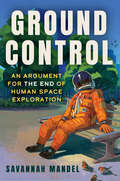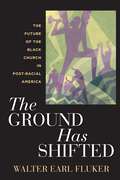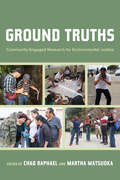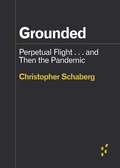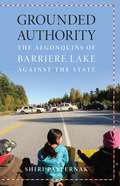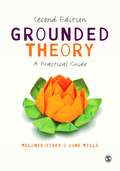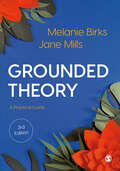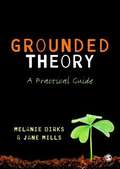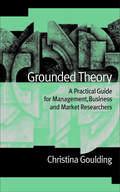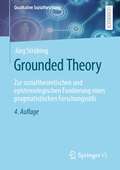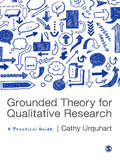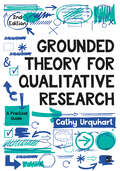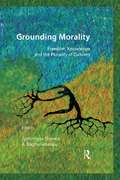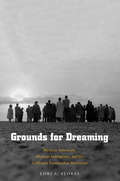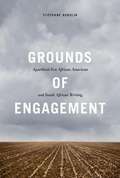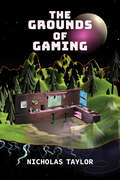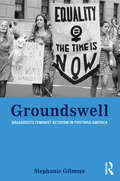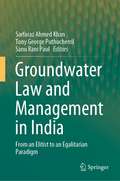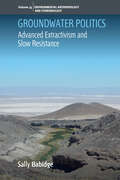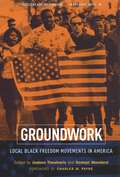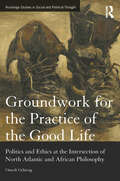- Table View
- List View
Ground Control: An Argument for the End of Human Space Exploration
by Savannah MandelIn the 1960s and '70s, America spent $24 billion (around $150 billion in today's dollars) to land humans on the moon and "win" the space race. And while humans took their first steps on an extraterrestrial landscape, protesters at Cape Canaveral asked: Why waste money on space when there are so many issues here on Earth? More than 50 years later, an oligopoly of commercial space companies—SpaceX, Blue Origin, and Virgin Galactic—has begun sending civilians into space. These civilians are the first generation of what will undoubtedly be an extensive family of space tourists. Commercial space companies aim to expand access to space, find new sources of energy, mine outer space resources, and conquer extraterrestrial lands. But their goals remain that of a capitalist and imperialist class, intent on new frontier profiteering. Savannah Mandel uses cultural anthropology to trace the trajectory of the space industry as it faces the social, political, and economic repercussions of commercial space ventures head-on. In doing so, Mandel holds the space industry accountable for its actions by asking the same questions that some thought leaders asked in the 1960s:Should we go? Is it worth it to send humans to space? What cultural outcomes will result from continued human space exploration and the colonization of other worlds? And last, what can we learn about our present selves by studying our most extreme visions of the future
The Ground Has Shifted: The Future of the Black Church in Post-Racial America (Religion, Race, and Ethnicity #6)
by Walter Earl Fluker&“An exuberant, thought-provoking assessment of the dilemmas facing black churches&” examining their historic role in today&’s cultural landscape (Publishers Weekly, starred review). In The Ground Has Shifted, Walter Earl Fluker discusses the historical and current role of the Black church and argues that the older race-based language and metaphors of religious discourse have outlived their utility. He offers instead a larger, global vision for the Black church that focuses on young Black men and other disenfranchised groups who have been left behind in a world of globalized capital. Lyrically written with an emphasis on the dynamic and fluid movement of life itself, Fluker argues that the church must find new ways to use race as an emancipatory instrument if it is to remain central in Black life. He points the way for a new generation of church leaders, scholars and activists to reclaim the Black church&’s historical identity and to turn to the task of infusing character, civility, and a sense of community among its congregants.Honorable Mention, Theology and Religious Studies PROSE Award
Ground Truths: Community-Engaged Research for Environmental Justice
by Chad Raphael and Martha MatsuokaA free ebook version of this title is available through Luminos, University of California Press’s Open Access publishing program. Visit www.luminosoa.org to learn more. This is the first book devoted entirely to summarizing the body of community-engaged research on environmental justice, how we can conduct more of it, and how we can do it better. It shows how community-engaged research makes unique contributions to environmental justice for Black, Indigenous, people of color, and low-income communities by centering local knowledge, building truth from the ground up, producing actionable data that can influence decisions, and transforming researchers’ relationships to communities for equity and mutual benefit. The book offers a critical synthesis of relevant research in many fields, outlines the main steps in conducting community-engaged research, evaluates the major research methods used, suggests new directions, and addresses overcoming institutional barriers to scholarship in academia. The coauthors employ an original framework that shows how community-engaged research and environmental justice align, which links research on the many topics treated in the chapters—from public health, urban planning, and conservation to law and policy, community economic development, and food justice and sovereignty.
Grounded: Perpetual Flight . . . and Then the Pandemic (Forerunners: Ideas First)
by Christopher SchabergAs commercial flight is changing dramatically and its future remains unclear, a look at how we got hereGrounded: Perpetual Flight . . . and Then the Pandemic considers the time leading up to the COVID-19 pandemic and the ensuing global plummet in commercial flight. Mobility studies scholar Christopher Schaberg tours the newly opened airport terminal outside of New Orleans (MSY) in late 2019, and goes on to survey the broad cultural landscape of empty airports and grounded planes in the early months of the novel coronavirus&’s spread in 2020. The book culminates in a reflection on the future of air travel: what may unfold, and what parts of commercial flight are almost certainly relics of the past. Grounded blends journalistic reportage with cultural theory and philosophical inquiry in order to offer graspable insights as well as a stinging critique of contemporary air travel.
Grounded Authority: The Algonquins of Barriere Lake against the State (Indigenous Americas)
by Shiri PasternakWestern Political Science Association's Clay Morgan Award for Best Book in Environmental Political Theory Canadian Studies Network Prize for the Best Book in Canadian Studies Nominated for Best First Book Award at NAISA Honorable Mention: Association for Political and Legal Anthropology Book Prize Since Justin Trudeau&’s election in 2015, Canada has been hailed internationally as embarking on a truly progressive, post-postcolonial era—including an improved relationship between the state and its Indigenous peoples. Shiri Pasternak corrects this misconception, showing that colonialism is very much alive in Canada. From the perspective of Indigenous law and jurisdiction, she tells the story of the Algonquins of Barriere Lake, in western Quebec, and their tireless resistance to federal land claims policy. Grounded Authority chronicles the band&’s ongoing attempts to restore full governance over its lands and natural resources through an agreement signed by settler governments almost three decades ago—an agreement the state refuses to fully implement. Pasternak argues that the state&’s aversion to recognizing Algonquin jurisdiction stems from its goal of perfecting its sovereignty by replacing the inherent jurisdiction of Indigenous peoples with its own, delegated authority. From police brutality and fabricated sexual abuse cases to an intervention into and overthrow of a customary government, Pasternak provides a compelling, richly detailed account of rarely documented coercive mechanisms employed to force Indigenous communities into compliance with federal policy.A rigorous account of the incredible struggle fought by the Algonquins to maintain responsibility over their territory, Grounded Authority provides a powerful alternative model to one nation&’s land claims policy and a vital contribution to current debates in the study of colonialism and Indigenous peoples in North America and globally.
Grounded Theory: A Practical Guide
by Melanie Birks Jane MillsThis highly practical book introduces the whole range of grounded theory approaches, providing a comprehensive description of the strategies and techniques employed in this methodology. Unlike most existing books in this area, it is not written from a particular philosophical standpoint, and is the ideal first introduction for any student or researcher looking to use grounded theory in their analysis for the first time. Birks and Mills’ accessible and highly-readable text is driven by practical case examples throughout to help the reader get to grips with the process of doing grounded theory analysis for themselves. The book deploys a variety of educational activities to guide readers through both the principles and the application of grounded theory, making this an ideal starter text for those new to the approach. This updated Second Edition: guides the reader through each step of the grounded theory process clearly explains how to memo effectively, using examples includes a chapter which explains the difference between data generation and collection features information on how to use digital resources to manage data discusses the philosophy and ethics of grounded theory within the qualitative paradigm. Available with Perusall—an eBook that makes it easier to prepare for class Perusall is an award-winning eBook platform featuring social annotation tools that allow students and instructors to collaboratively mark up and discuss their SAGE textbook. Backed by research and supported by technological innovations developed at Harvard University, this process of learning through collaborative annotation keeps your students engaged and makes teaching easier and more effective. Learn more.
Grounded Theory: A Practical Guide
by Melanie Birks Jane MillsThis highly practical book introduces the whole range of grounded theory approaches, providing a comprehensive description of the strategies and techniques employed in this methodology. Unlike most existing books in this area, it is not written from a particular philosophical standpoint, and is the ideal first introduction for any student or researcher looking to use grounded theory in their analysis for the first time. Birks and Mills' accessible and highly-readable text is driven by practical case examples throughout to help the reader get to grips with the process of doing grounded theory analysis for themselves. The book deploys a variety of educational activities to guide readers through both the principles and the application of grounded theory, making this an ideal starter text for those new to the approach. This updated second edition: guides the reader through each step of the grounded theory process clearly explains how to memo effectively, using examples includes a chapter which explains the difference between data generation and collection features information on how to use digital resources to manage data discusses the philosophy and ethics of grounded theory within the qualitative paradigm.
Grounded Theory: A Practical Guide
by Melanie Birks Jane MillsThe student-focused guide to grounded theory, this book takes you step by step through the whole research process, from creating a research proposal to sharing your findings. Packed with tools to help you understand how grounded theory can be applied at each stage of your research project, the book includes: •Interactive activities and critical thinking questions in every chapter so you can put your knowledge into practice •Case studies written by a wide variety of researchers so you can learn how to navigate real world research from people who have been in your shoes •Templates and checklists to help guide your writing and ensure you don’t miss a step in the research process. Clear, accessible and applied, this book will help you get to grips with the philosophy of grounded theory, understand the nuts and bolts of designing and carrying out your research project, and manage any hurdles along the way. Explore the accompanying online resources, which include PowerPoint slides, additional templates, and weblinks to videos and journal articles relevant to the key concepts in each chapter.
Grounded Theory: A Practical Guide
by Melanie Birks Jane MillsThe student-focused guide to grounded theory, this book takes you step by step through the whole research process, from creating a research proposal to sharing your findings. Packed with tools to help you understand how grounded theory can be applied at each stage of your research project, the book includes: •Interactive activities and critical thinking questions in every chapter so you can put your knowledge into practice •Case studies written by a wide variety of researchers so you can learn how to navigate real world research from people who have been in your shoes •Templates and checklists to help guide your writing and ensure you don’t miss a step in the research process. Clear, accessible and applied, this book will help you get to grips with the philosophy of grounded theory, understand the nuts and bolts of designing and carrying out your research project, and manage any hurdles along the way. Explore the accompanying online resources, which include PowerPoint slides, additional templates, and weblinks to videos and journal articles relevant to the key concepts in each chapter.
Grounded Theory
by Melanie Birks Jane MillsNominated for The Qualitative Book Award for 2013 Watch Melanie Birks' interview on grounded theory This is a highly practical book which introduces the whole range of grounded theory approaches. Unlike most existing books in this area, which are written from a particular philosophical standpoint, this text provides a comprehensive description of the strategies and techniques employed in this methodology. Birks and Mills accessible and highly-readable text is driven by practical case examples throughout to help the reader get to grips with the process of doing grounded theory analysis for themselves. The book deploys a variety of educational activities to guide readers through both the principles and the application of grounded theory, making this an ideal starter text for those new to the approach. This is an ideal first introduction to grounded theory for any student or researcher looking to use grounded theory approaches in their analysis for the first time.
Grounded Theory: A Practical Guide for Management, Business and Market Researchers
by Christina GouldingWritten with a clarity of style and a practical slant throughout, this book represents a primer for organizational, business and marketing students studying for research degrees who would like to adopt the grounded theory methodology approach for their dissertation or thesis. In a similar vein, it also should be a hugely important resource for researchers. It aims to both properly contextualise grounded theory by looking at its background, characteristics and the different sides of the argument of its potential for the researcher, but also to outline how the approach may be applied within a research context. Grounded Theory is different from other texts on four levels: · It offers an overview of qualitative methods in general and locates grounded theory in this context; · It compares and contrasts the various grounded theory approaches in an accessible manner; · It offers an in-depth case study for students and researchers to follow/use; · And it provides a critique of the methodology itself. Essential reading for advanced students and academics in the fields of organizational and business studies, marketing and management.
Grounded Theory: Zur sozialtheoretischen und epistemologischen Fundierung eines pragmatistischen Forschungsstils (Qualitative Sozialforschung)
by Jörg StrübingWenig wurde bislang über die erkenntnistheoretische Fundierung der Grounded Theory in der pragmatischen Sozialphilosophie und die daraus resultierenden Konsequenzen für das Verständnis der methodologischen Konzeption wie der praktischen Verfahren geschrieben. Der Band schließt diese Lücke, indem das Erkenntnismodell, ausgehend von den Arbeiten von C.S. Peirce, J. Dewey, G.H. Mead und W. James, vorgestellt und den Spuren nachgegangen wird, die dieses Modell als Geltungsbegründung in der Methodologie der Grounded Theory hinterlassen hat. Dabei geht der Text auch auf die gravierenden methodologischen Unterschiede zwischen der von Anselm L. Strauss geprägten und der von Barney G. Glaser vertretenen Variante von Grounded Theory ein und beschäftigt sich mit wesentlichen Weiterentwicklungen einer pragmatistischen Grounded Theory im Kontext postmodernen Denkens. Die vorliegende, vierte Auflage schließt zudem den aktuellen Diskurs um die Etablierung ansatzübergreifender Gütekriterien qualitativen Forschens an die Grounded Theory-immanenten Strategien zur Qualitätssicherung an. Forschende erhalten damit eine wertvolle Argumentationshilfe für die Legitimation ihrer empirischen Designs.
Grounded Theory for Qualitative Research: A Practical Guide
by Cathy UrquhartBased on the author's own wealth of experience this timely, engaging book helps first-time researchers to discover the excitement of grounded theory. Fresh, innovative and clear this book traces the history and development of grounded theory method, and examines how the method is evolving for new contexts today. It sets out the principles involved in using grounded theory and explains the process and theory associated with coding in grounded theory. The book introduces us to the practicalities of research design, theory building, coding and writing up and gives us the tools to tackle key questions: - What is grounded theory? - How do we code and theorise using grounded theory? - How do we write up a grounded theory study? This is an exciting new text for students and researchers across the social sciences who want to use grounded theory.
Grounded Theory for Qualitative Research: A Practical Guide
by Cathy UrquhartStraightforward and accessible, this pragmatic guide takes you step-by-step through doing grounded theory research. With hands-on advice focussed around designing real projects, it demonstrates best practice for integrating theory building and methods. Its extensive examples and case studies are drawn from across the social sciences, presenting students with a range of options for both applying and using grounded theory. Clear and easy to follow, this second edition: Traces the evolution of grounded theory method and provides a clear introduction to the nuanced history of grounded theory Showcases important concepts like theory building, helping you to reflect on the wider context of your research and the contribution it makes to existing literature Offers practical advice for how to do grounded theory research, alleviating common student concerns every step of the way This new edition features two new chapters: one covering theory, and one on Theoretical Sampling. Several chapters have also undergone updates: Chapter 5 includes a wider range of perspectives including feminist and post-colonial perspectives, Chapter 9 features new, contemporary examples on how to write up your study, and Chapters 2 and 10 include new developments in the field of Grounded Theory. Supported by videos from the author sharing expert advice, this book helps you build the confidence to explore and successfully complete your own grounded theory research.
Grounded Theory for Qualitative Research: A Practical Guide
by Cathy UrquhartStraightforward and accessible, this pragmatic guide takes you step-by-step through doing grounded theory research. With hands-on advice focussed around designing real projects, it demonstrates best practice for integrating theory building and methods. Its extensive examples and case studies are drawn from across the social sciences, presenting students with a range of options for both applying and using grounded theory. Clear and easy to follow, this second edition: Traces the evolution of grounded theory method and provides a clear introduction to the nuanced history of grounded theory Showcases important concepts like theory building, helping you to reflect on the wider context of your research and the contribution it makes to existing literature Offers practical advice for how to do grounded theory research, alleviating common student concerns every step of the way This new edition features two new chapters: one covering theory, and one on Theoretical Sampling. Several chapters have also undergone updates: Chapter 5 includes a wider range of perspectives including feminist and post-colonial perspectives, Chapter 9 features new, contemporary examples on how to write up your study, and Chapters 2 and 10 include new developments in the field of Grounded Theory. Supported by videos from the author sharing expert advice, this book helps you build the confidence to explore and successfully complete your own grounded theory research.
Grounding Morality: Freedom, Knowledge and the Plurality of Cultures
by Jyotirmaya Sharma A. RaghuramarajuPut together to honour one of the most influential philosophers in recent times, Mrinal Miri, this book brings together articles on philosophy, politics, literature and society, and updates the status of enquiry in each of these fields. In his philosophical writings, Miri has broken the stranglehold that early training has on academics and written on a range of themes and areas, including analytical philosophy, political philosophy, tribal identity, ethics and, more recently, an abiding engagement with the ideas of Gandhi. The articles in this volume mirror some of Miri’s concerns and philosophical interests, but go beyond the format of a festschrift, as they seek to enhance and restate themes in moral philosophy, ethics, questions of identity, Gandhi’s philosophy, and offer a fresh perspective on themes such as secularism, religion and politics.
Grounds for Difference
by Rogers BrubakerOffering fresh perspectives on perennial questions of ethnicity, race, nationalism, and religion, Rogers Brubaker analyzes three forces that shape the politics of diversity and multiculturalism today: inequality as a public concern, biology as an asserted basis of racial and ethnic difference, and religion as a key terrain of public contestation.
Grounds for Dreaming
by Lori A. FloresAn incisive study of labor, migration, race, gender, citizenship, and class, Lori Flores’s first book offers crucial insights for today’s ever-growing U.S. Latino demographic, the farmworker rights movement, and future immigration policy.
Grounds of Engagement: Apartheid-Era African-American and South African Writing
by Stephane RobolinPart literary history, part cultural study, Grounds of Engagement examines the relationships and exchanges between black South African and African American writers who sought to create common ground throughout the antiapartheid era. Stéphane Robolin argues that the authors' geographic imaginations crucially defined their individual interactions and, ultimately, the literary traditions on both sides of the Atlantic. Subject to the tyranny of segregation, authors such as Richard Wright, Bessie Head, Langston Hughes, Gwendolyn Brooks, Keorapetse Kgositsile, Michelle Cliff, and Richard Rive charted their racialized landscapes and invented freer alternative geographies. They crafted rich representations of place to challenge the stark social and spatial arrangements that framed their lives. Those representations, Robolin contends, also articulated their desires for black transnational belonging and political solidarity. The first book to examine U.S. and South African literary exchanges in spatial terms, Grounds of Engagement identifies key moments in the understudied history of black cross-cultural exchange and exposes how geography serves as an indispensable means of shaping and reshaping modern racial meaning.
The Grounds of Gaming (Digital Game Studies)
by Nicholas TaylorHow do we make space for video games in the places where we live, work, and play—and who is allowed to feel welcome there? Despite attempts to expand games beyond their conventional audience of young men, the physical contexts of gameplay and production remain off-limits and unsafe for so many.The Grounds of Gaming explores the physical places where games are played and how they contribute to the persistence of gaming's problematic politics. Drawing on fieldwork in an array of sites, author Nicholas Taylor explores the real-world settings where games are played, watched, discussed and designed. Sometimes these places are sticky, dark, and stinky; other times they are pristine and well appointed. Situating its chapters in such scenes as domestic gaming setups, campus computer labs, LAN parties, esports arenas, and convention centers, Taylor maps the infrastructural connections between games, place, masculinity, and whiteness.By inviting us to reconsider gaming's cultural politics from the ground up, The Grounds of Gaming offers new theoretical insights and practical resources regarding how to make game cultures and industries more inclusive.
Groundswell: Grassroots Feminist Activism in Postwar America
by Stephanie GilmoreGroundswell: Grassroots Feminist Activism in Postwar America offers an essential perspective on the post-1960 movement for women’s equality and liberation. Tracing the histories of feminist activism, through the National Organization of Women (NOW) chapters in three different locations: Memphis, Tennessee, Columbus, Ohio, and San Francisco, California, Gilmore explores how feminist identity, strategies, and goals were shaped by geographic location. Departing from the usual conversation about the national icons and events of second wave feminism, this book concentrates on local histories, and asks the questions that must be answered on the micro level: Who joined? Who did not? What did they do? Why did they do it? Together with its analysis of feminist political history, these individual case studies from the Midwest, South, and West coast shed light on the national women’s movement in which they played a part. In its coverage of women’s activism outside the traditional East Coast centers of New York and Boston, Groundswell provides a more diverse history of feminism, showing how social and political change was made from the ground up.
Groundwater Law and Management in India: From an Elitist to an Egalitarian Paradigm
by Sarfaraz Ahmed Khan Tony George Puthucherril Sanu Rani PaulThis book presents a comprehensive analysis of the existing nature of India’s groundwater laws. In the backdrop of the gravity of groundwater crisis that threatens to engulf the country, the book examines the correlation between the imperfections in the law and water crisis and advocates a reform agenda to overhaul the legal framework. It accomplishes this objective by examining how some of the States and Union Territories regulate and manage groundwater through the legal instrumentality against the backdrop of the two conflicting paradigms: the “elitist” and the “egalitarian.” The book’s fundamental premise is that despite being an extraordinarily critical resource that supports India’s burgeoning population’s ever-increasing water demands, groundwater is abused and mismanaged. The key argument that it posits is that the elitist paradigm must give way to an egalitarian one where groundwater is treated as a common property resource. To place this message in perspective, the book’s introduction explains the dichotomy between the two paradigms in the context of groundwater. This sets the stage, after which the book is divided thematically into three parts. The first part deals with some of the general groundwater management concerns brought to the fore by the operation of the elitist paradigm. Since water is constitutionally a State subject, the second part analyses the groundwater legislations of different States and Union Territories set against their unique circumstances. As these laws do not dismantle the elitist paradigm that interlocks groundwater rights to land rights, the next part articulates the legal reform agenda where a case is made to re-engineer groundwater laws to reflect a more sustainable basis. The findings and arguments resonate with the situation in many developing countries around the world due to which the book is a valuable resource for researchers across disciplines studying this area, and also for policy makers, think tanks, and NGOs.Groundwater Management–Inter-state Water Conflicts–Aquifers–Water Markets–Water Security–Water Law Reform–Groundwater Law–Water Law–Sustainable Development–Hydrology
Groundwater Politics: Advanced Extractivism and Slow Resistance (Environmental Anthropology and Ethnobiology)
by Sally BabidgeThe mining industry is an expanding socio-ecological and political problem worldwide, not least in Atacameño-Likanantay (Indigenous) territories in the hyper-arid Salar de Atacama, Chile. Groundwater Politics addresses the social, technical and political conditions it calls ‘advanced extractivism’ to reveal how groundwater extraction sustains both ecological damage and mining economies. It richly describes the area's copper and lithium industries as historically linked with Indigenous communities and their ecological and economic futures. Based on over a decade of ethnographic research, the book casts community strategies to control water and territory as 'slow resistance’, the structural and multifaceted practices that generate a material future amid potential resource exhaustion.
Groundwork: Local Black Freedom Movements in America
by Jeanne Theoharis Komozi Woodard Charles M. PaynePathbreaking essays on the power of local activism on the broader Civil Rights movementOver the last several years, the traditional narrative of the civil rights movement as largely a southern phenomenon, organized primarily by male leaders, that roughly began with the 1955 Montgomery Bus Boycott and ended with the Voting Rights Act of 1965, has been complicated by studies that root the movement in smaller communities across the country. These local movements had varying agendas and organizational development, geared to the particular circumstances, resources, and regions in which they operated. Local civil rights activists frequently worked in tandem with the national civil rights movement but often functioned autonomously from—and sometimes even at odds with—the national movement.Together, the pathbreaking essays in Groundwork teach us that local civil rights activity was a vibrant component of the larger civil rights movement, and contributed greatly to its national successes. Individually, the pieces offer dramatic new insights about the civil rights movement, such as the fact that a militant black youth organization in Milwaukee was led by a white Catholic priest and in Cambridge, Maryland, by a middle-aged black woman; that a group of middle-class, professional black women spearheaded Jackson, Mississippi's movement for racial justice and made possible the continuation of the Freedom Rides, and that, despite protests from national headquarters, the Brooklyn chapter of the Congress of Racial Equality staged a dramatic act of civil disobedience at the 1964 World’s Fair in New York.No previous volume has enabled readers to examine several different local movements together, and in so doing, Groundwork forges a far more comprehensive vision of the black freedom movement.
Groundwork for the Practice of the Good Life: Politics and Ethics at the Intersection of North Atlantic and African Philosophy (Routledge Studies in Social and Political Thought)
by Omedi OchiengWhat makes for good societies and good lives in a global world? In this landmark work of political and ethical philosophy, Omedi Ochieng offers a radical reassessment of a millennia-old question. He does so by offering a stringent critique of both North Atlantic and African philosophical traditions, which he argues unfold visions of the good life that are characterized by idealism, moralism, and parochialism. But rather than simply opposing these flawed visions of the good life with his own set of alternative prescriptions, Ochieng argues that it is critically important to step back and understand the stakes of the question. Those stakes, he suggests, are to be found only through a social ontology – a comprehensive and in-depth account of the political, economic, and cultural structures that mark the boundaries and limits of life in the twenty-first century. It is only in light of this social ontology that Ochieng then proffers an alternative normative account of the good society and the good life – which he spells out as emergent from ecological embeddedness; social entanglement; embodied encounter; and aesthetic engenderment. At once sweeping and rigorous, incisive and subtle, original and revisionary, this book does more than just appeal to intellectuals and scholars across the humanities and social sciences – rather, it opens up the academic disciplines to a whole new landscape of exploration into the biggest and most pressing questions animating the human experience.
